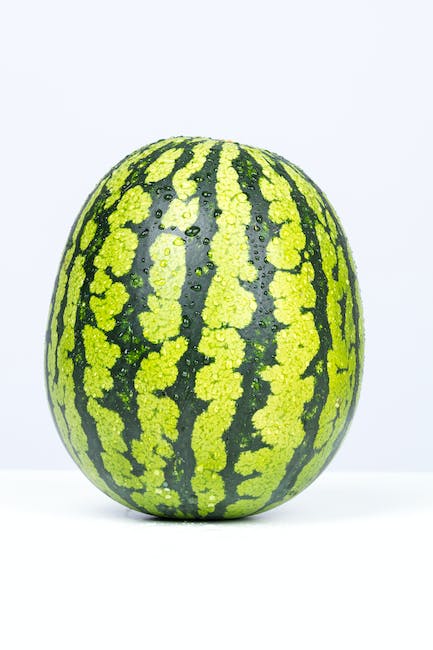Is Watermelon Good for Weight Loss? Uncovering the Juicy Facts
Are you on a quest to shed some pounds and wondering if watermelon could be your sweet ally in this journey? You’re not alone in pondering the potential weight loss benefits of this refreshing fruit. In this comprehensive guide, we’ll dive into the heart of the matter, exploring the nutritional profile of watermelon and how it can fit into a weight loss diet. Get ready to discover the answers to commonly searched questions and learn whether watermelon is the weight loss wonder you’ve been looking for.
The Nutritional Profile of Watermelon
Understanding Watermelon’s Caloric Content
Watermelon is known for its high water content, which makes it a low-calorie food choice. A one-cup serving of diced watermelon contains approximately 30-50 calories, making it an excellent option for those looking to reduce their caloric intake without sacrificing volume.
Vitamins, Minerals, and Antioxidants in Watermelon
Not only is watermelon low in calories, but it’s also rich in vitamins and minerals. It boasts Vitamin C, Vitamin A, potassium, and magnesium. Additionally, it contains antioxidants like lycopene and cucurbitacin E, which have been linked to various health benefits.
Can Watermelon Help You Lose Weight?
The Role of Watermelon in Hydration and Fullness
Hydration and Weight Loss
Staying hydrated is crucial when trying to lose weight. Watermelon, being over 90% water, can help you meet your hydration needs. Proper hydration can aid in metabolism and help you feel full, potentially reducing overall calorie intake.
The Fullness Factor
The high water content of watermelon also contributes to a feeling of fullness. Eating foods with high water content can help control hunger, which may lead to less snacking and fewer calories consumed throughout the day.
Watermelon’s Fiber Content and Weight Loss
While watermelon isn’t packed with fiber, it does contain a small amount that can aid in digestion and promote satiety. Fiber is an essential component of a weight loss diet as it slows down digestion and helps control blood sugar levels.
How to Incorporate Watermelon into a Weight Loss Diet
Smart Serving Ideas
- As a hydrating snack: Enjoy chilled watermelon cubes or sticks for a refreshing and satisfying snack.
- In a fruit salad: Combine watermelon with other low-calorie fruits like berries and kiwi for a nutrient-rich treat.
- As a smoothie ingredient: Blend watermelon with ice and a scoop of protein powder for a post-workout recovery drink.
Portion Control and Timing
Portion Size Matters
Even with low-calorie foods like watermelon, portion control is key. Stick to recommended serving sizes to avoid consuming too many calories.
Best Times to Eat Watermelon
Eating watermelon as a snack between meals can prevent overeating during main meals. Additionally, enjoying it post-exercise can help with hydration and muscle recovery.
Common Questions About Watermelon and Weight Loss
Is Watermelon High in Sugar?
Watermelon does contain natural sugars, but its high water content balances out the impact on blood sugar levels. It has a low glycemic load, which means it has a minimal effect on blood sugar when consumed in reasonable amounts.
Can Eating Watermelon at Night Cause Weight Gain?
There’s no evidence to suggest that eating watermelon at night will lead to weight gain. What matters most for weight loss is the total caloric intake throughout the day, not the timing of specific foods.
Conclusion: The Verdict on Watermelon for Weight Loss
In summary, watermelon can be a beneficial addition to a weight loss diet due to its low calorie and high water content. It’s a delicious way to stay hydrated, satisfy your sweet tooth, and contribute to a feeling of fullness. Remember to enjoy watermelon in moderation and as part of a balanced diet to reap the best weight loss results. So go ahead, slice up that juicy melon, and enjoy it as part of your healthy lifestyle!


